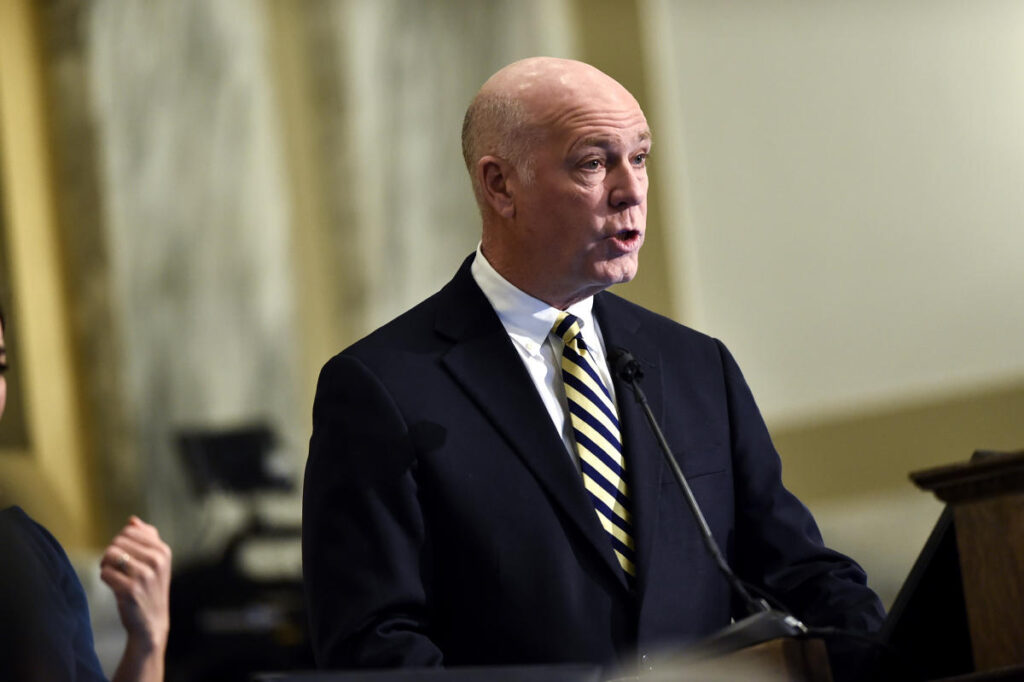Montana’s political landscape is heating up as the Republican governor, Greg Gianforte, prepares to face his Democratic challenger, Ryan Busse, in what is expected to be the only debate of this election season. The timing is crucial, especially as the state appears to be shifting in favor of the GOP, with Gianforte previously winning the governorship in 2020 with strong support from former President Donald Trump. However, initial reluctance on Gianforte’s part to engage in debate with Busse, whom he dismissed as not a serious candidate, has backfired. After Busse publicly shared a decade’s worth of tax returns in response to Gianforte’s demand, the stage is set for an important discussion on the policies and governance issues that are likely to influence the upcoming elections.
Gianforte’s 2020 election campaign was characterized by a substantial financial investment from himself, with over $7.5 million spent to secure the governorship. Since taking office, his administration has overseen several significant fiscal changes, including tax reductions for individuals and increases in property taxes, significantly impacting residents across Montana. While Gianforte claims credit for a balanced state budget and record-low unemployment, his tenure has not been without controversy. His administration enacted laws limiting access to abortion and blocking gender-affirming medical care for transgender minors; however, these pieces of legislation have faced legal challenges, complicating his governance record.
Busse, a former executive in the firearms industry, presents a contrasting narrative as he aims to portray Gianforte as disconnected from the needs of everyday Montanans. Hailing from Kalispell, Busse has accused Gianforte of leveraging his wealth to secure political power while ignoring rising housing costs in Montana that have made affordability a significant issue for many citizens. Distancing himself from his former ties in the firearm business due to ethical disagreements over marketing strategies, Busse is trying to position himself as a candidate focused on the typical voter rather than the affluent elite.
The financial backgrounds of both candidates will likely play a pivotal role in the debate and the election itself. Busse and his wife reported an annual income of about $260,000 over the past decade, a stark contrast to Gianforte, who amassed significant wealth as a tech entrepreneur. Gianforte moved to Montana in 1995, building a successful technology company that was later sold for nearly $2 billion. This steep ascent in wealth, while beneficial for his campaign financing, has become a focal point for Busse, indicating a potential alienation of Gianforte from the average voter’s struggles.
Gianforte’s political trajectory has been marked by notable highs and lows. His image took a hit early on when he was charged with misdemeanor assault after physically confronting a reporter in 2017. Despite this, Gianforte’s resilience is evident as he successfully won a special election to the U.S. House, followed by a reelection campaign in 2018. This duality of vulnerability and triumph underscores the complexities of his political persona, as he has managed to maintain a foothold within the Republican-dominated landscape of Montana.
As both candidates gear up for the upcoming debate, the focus will likely center on Gianforte’s record in office and Busse’s vision for a more inclusive leadership. The Republican supermajority in the Montana Legislature has amplified Gianforte’s ability to push through his agenda, granting him significant power, including the ability to appoint judges during mid-term vacancies. How Busse navigates the criticism of Gianforte’s policies and addresses the pressing housing and healthcare concerns in Montana could prove pivotal as voters assess their choices in this election year. This debate marks not only a clash of personalities but also divergent visions for Montana’s future governance amid shifting economic and social dynamics.

